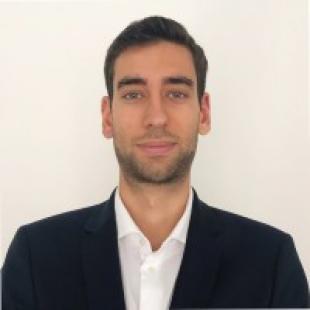| Name | Doga Can Tanrikulu |
| Degree Title | BEng (Hons) Electronics and Electrical Engineering |
| Year of Graduation | 2021 |
What path has your career taken since graduation?
I graduated with a BEng in Electronics and Electrical Engineering from the University of Edinburgh, where the courses I studied ignited my passion for the energy sector. This interest motivated me to pursue a Master’s degree in Energy and Sustainability, which I completed in 2022. Following this, I began my professional journey at Mott MacDonald, a renowned global engineering consultancy, as a Graduate Electrical Engineer.
What is your current role?
When I first joined Mott MacDonald, I was part of the substation design team. The company strongly encourages graduates to rotate between teams, offering opportunities to gain a broader understanding and identify areas of interest. After six months, I transitioned to the technical advisory team, where I have been involved in Due Diligence and Lenders’ Technical Advisory projects, further expanding my expertise. This rotation was pivotal for me as I realised how much I enjoy contributing to high-profile projects while developing a deeper understanding of the regulatory landscape and the financing of major infrastructure initiatives.
The type of work I do varies significantly depending on the project and the services we provide to our clients. Currently, I work as an Electrical Engineer specialising in Technical Advisory and Front-End-Engineering-Design (FEED). Our clients range from transmission owners, renewable energy developers, generation companies to commercial and development banks. Since joining Mott MacDonald, I have contributed to major projects aimed at decarbonizing electricity transmission systems across the UK and Europe. These include utility-scale Battery Energy Storage Systems, cross-border interconnectors and substations that enable the integration of renewable energy into the power grid. Working in a consultancy firm means that no two weeks are ever the same. To maintain balance and efficiency in such a fast-paced environment, I rely on structured routines. At the start of each week, I map out my key priorities and allocate time to specific tasks. This ensures that I stay focused and aligned with project deadlines and team goals.
Alongside my technical duties, I have recently been appointed as the Early Career Professionals Lead for our Energy Unit. This role allows me to oversee a growing network of approximately 200 colleagues across Europe, driving initiatives that foster collaboration, development and innovation. It is a great responsibility and a privilege to support our early-career colleagues and contribute to our future talent pipeline.
What experiences do you feel helped you get to your current position?
Securing my current position required a combination of technical expertise and strong soft skills, both of which I developed through my academic and extracurricular experiences.
One pivotal experience was a coursework project where I designed the energy generation mix and transmission network for a country over the coming decades using power system analysis software. This project not only strengthened my technical proficiency in power system planning but also gave me a deep understanding of the critical factors influencing energy infrastructure decisions.
During my Master’s program, I gained expertise in transmission and distribution system design, power system economics and renewable energy system. My dissertation was focused on modelling and optimization of Utility-Scale Battery Energy Storage Systems. These specialised skills have been directly applicable in solving challenges faced by our clients.
Equally important, my involvement in university clubs and societies allowed me to develop key soft skills such as communication and teamwork. For instance, I served as a programme representative in my third year where I acted as a liaison between students and the faculty. This role improved my ability to engage with diverse stakeholders and strengthened my leadership skills.
How have you used the skills and/or knowledge developed during your degree in your career?
The knowledge and the skills I acquired during my degree laid a strong foundation in problem-solving, collaboration and technical expertise. This foundation allowed me to quickly build on my technical knowledge and adapt to new challenges in my career. Additionally, my degree fostered a mindset of curiosity and continuous learning, which has been invaluable as I gain real-world project experience and expand my professional capabilities.
What advice would you give to students who are interested in your area of work?
I might be biased; however, Edinburgh is one of the best institutions to obtain your degree from. It offers an incredible environment to grow academically and personally, so I encourage you to take full advantage of its opportunities. Immerse yourself in the vibrant city, connect with fellow students, and participate in university activities. Don’t stress too much about grades – focus instead on learning and personal development, as both are essential for your success.
If you’re unsure about your career path, start by reaching out to professionals in fields you’re curious about. Ask them what they enjoy and find challenging in their work; this will help you make more informed decisions about your future. One of the best resources at your disposal is the University of Edinburgh’s strong alumni network. I highly recommend making use of this, as it can offer valuable guidance and connections. And finally, remember it’s okay not to have everything figured out. University is a time for exploration so stay open to new opportunities, and most importantly, enjoy the journey!
This profile was published in January 2025



